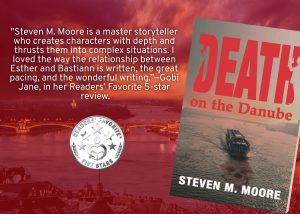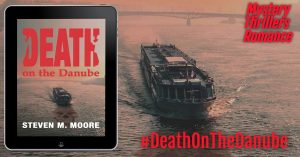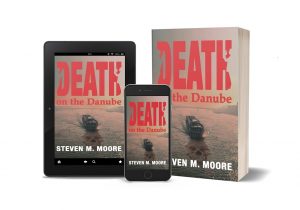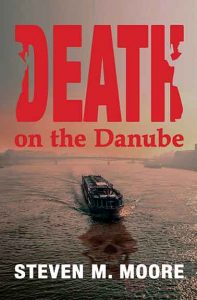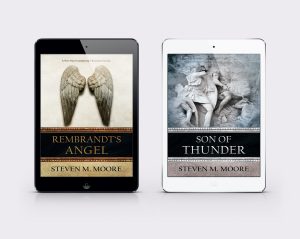Where are Chen and Castilblanco?
Wednesday, October 21st, 2020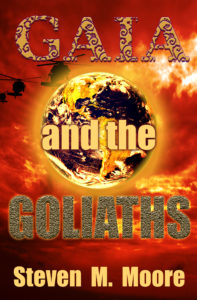
I haven’t written a new Chen and Castilblanco mystery/crime/thriller novel for years (the last, Gaia and the Goliaths, was published in 2017). The detectives were still alive and kicking in the last novel, Chen and husband Eric Kumala with a new baby and Castilblanco and wife Pam Stuart with two adopted children. Was that an appropriate way to end the series? I thought it might be a positive way to do that, a life-goes-on message where Dao-Ming Chen mellows out as a new mom and Rollie Castilblanco does his part to hold his family together, something very important to Hispanics (the two adopted kids are relatives).
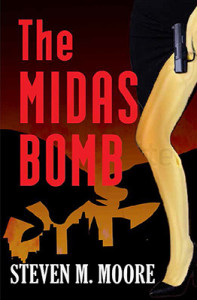
In the novella “The Phantom Harvester” (a free download—see the web page “Free Stuff & Contests”), the reader can discover whether Castilblanco’s children follow the old detective into law enforcement careers. And in The Golden Years of Virginia Morgan, Castilblanco had more than just a cameo as he helps DHS agent Ashley Scott with her problems. He also has a few cameos in the first three books of the “Esther Brookstone Art Detective” series, including its recent addition, Death on the Danube, and Chen will have one in #4 (untitled as yet, although a preview is contained at the end of Death on the Danube).
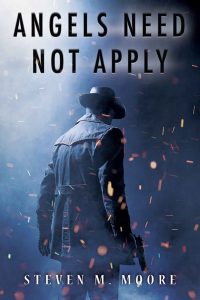
Not long ago in these pages, I wrote about how an author must realize when a series should end. I can understand why some, even famous writers, can’t help themselves. (Baldacci, Child, Connelly, Deaver, Gerritsen, and others come to mind; Grafton was the worst; and Patterson just started writing everything else, including writing children’s books, all bad, abandoning Alex Cross. Oh, and let’s not forget that Pendergast series! Of course, the fault might not lie with these authors. Their publishers, the greedy bastards, prod the old mares and stallions in their stables, failing to realize that their prodding nearly guarantees formulaic stories from them.)
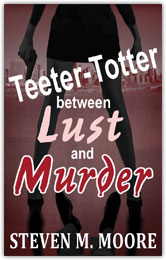
I wanted to avoid forcing another Chen and Castilblanco novel. My stories are often theme-based; many of the Chen and Castilblanco novels have more than one important them weaving through and around the plot. As much as I love Brit-style mysteries, their themes, if any exist, aren’t earth-shaking, especially when they border on cozies. Again, as much as I like Brit-style mysteries for my COVID reading, my mystery/crime/thriller stories are more complex—I don’t do simple! I want readers to think about those themes. I don’t see literature as escapism from the problems in the world.

I get that readers become attached to principal characters in a series—that’s the biggest reason why series exist! But authors fall into that trap too. If I never write another Chen and Castilblanco novel, they will still live on, maybe acquiring a bit of immortality I cannot have. That’s both sad and uplifting. Of course, in a thousand years, no one will care about any of today’s authors or their characters!
Maybe I’ll bring Chen and Castilblanco back. Until I do, you can binge-read the entire series of seven books. They’re evergreen in the sense that they’re as fresh as the day I published them, treating those important themes and filling them with twists and turns that might leave you head spinning. If these were the only books I’d written, I’d still be completely satisfied with my oeuvre. Happy reading!
***

Comments are always welcome!
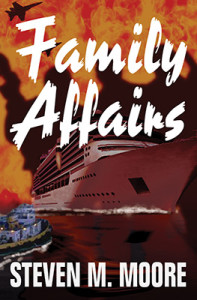
Binge on the “Detectives Chen and Castilblanco” Series. The cases these two NYPD homicide detectives start with in the Big Apple but often take on national and international ramifications. In The Midas Bomb, they face a conspiracy involving a Wall Street swindler and terrorism. In Angels Need Not Apply, the murder of an FBI agent’s son leads to battles with a cartel, militia, and al Qaeda. In Teeter-Totter between Lust and Murder, Castilblanco’s attempts toward proving Chen innocent of murder leads to a group intent on overthrowing the US government, all financed by the illegal gun trade. Aristocrats and Assassins finds Castilblanco and his wife on vacation in Europe, his idyllic time there destroyed by yet another terrorist who’s kidnapping members of Europe’s royal families. The Collector has the two detectives fighting human traffickers where some of their victims are forced to work in porn and snuff videos, all financed by stolen artworks. In Family Affairs, Castilblanco’s own family is threatened, but both he and Chen are on their way to becoming parents. And Gaia and the Goliaths explores environmental issues and how fossil fuel companies, including Russia’s, will do anything to preserve their hegemony. All these novels are available wherever quality ebooks are sold.
Around the world and to the stars! In libris libertas!
 I used several references to make these descriptions, too many to list here. Like an honest high school student writing a report, they were only used in spirit, rewritten but sticking to the facts, as I edited them in such a way to fit into the narrative in the story. (If you’re a high school teacher—I respect you all, especially now—you can use your software to check me.) Some focus on the sites, others on the history (particularly the one for Budapest). Enjoy.
I used several references to make these descriptions, too many to list here. Like an honest high school student writing a report, they were only used in spirit, rewritten but sticking to the facts, as I edited them in such a way to fit into the narrative in the story. (If you’re a high school teacher—I respect you all, especially now—you can use your software to check me.) Some focus on the sites, others on the history (particularly the one for Budapest). Enjoy.




